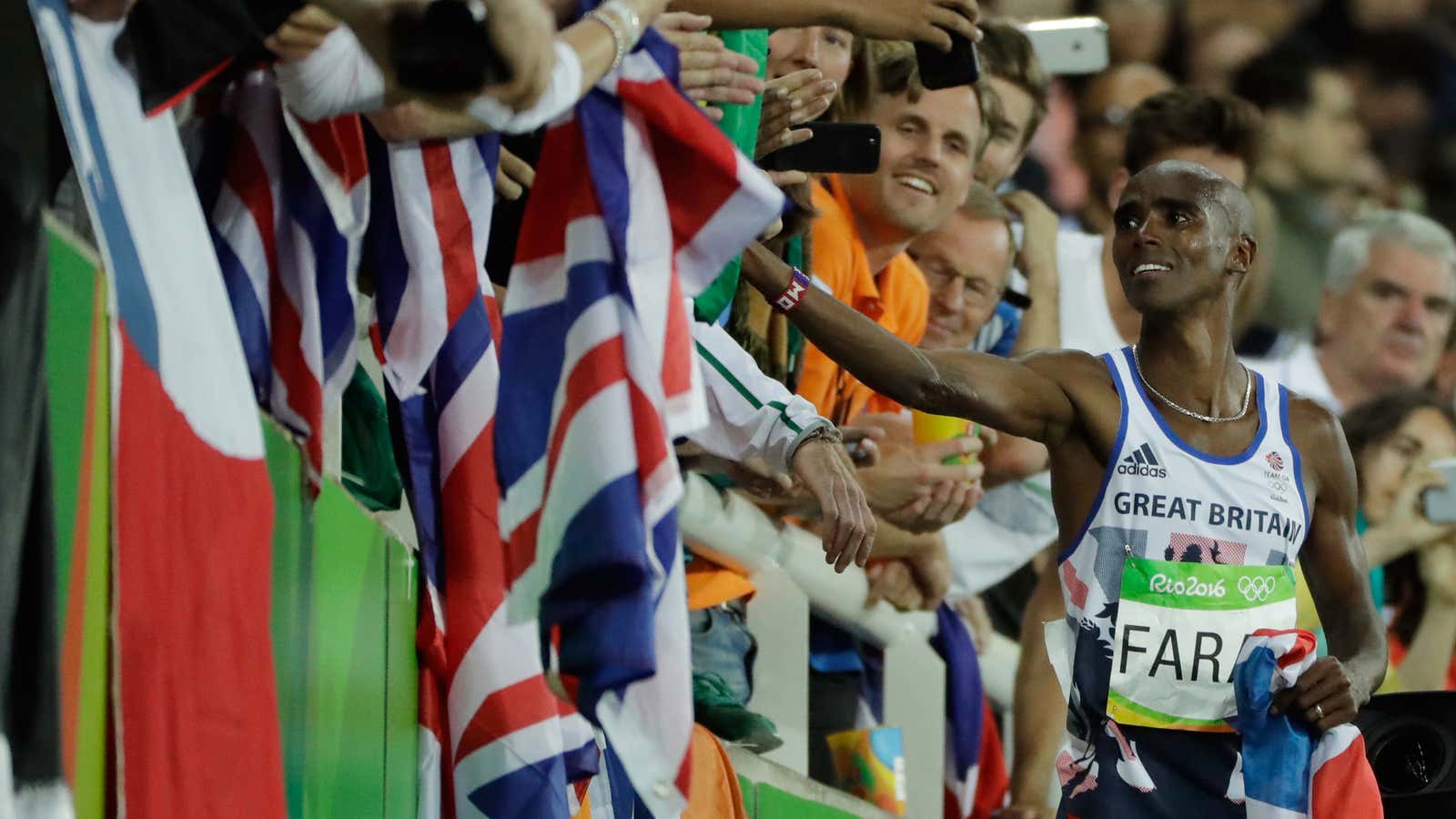Four years ago, the Somalian-born Muslim long-distance runner Mo Farah won the 10,000 meter and 5,000 meter races at the London 2012 Olympics. When he crossed the line to win the 5,000m, the crowd was cheering so boisterously for Farah that it shook the cameras that were set up to capture the finish.
Farah, a devout Muslim, has since become a cultural icon for Muslims in the UK and beyond. (The Royal Islamic Strategic Studies Centre considers him to be one of the most influential Muslims in the world, and his victory dance has been dubbed the “Mobot” by adoring fans.) His stardom made his win last night (Aug. 13) in Rio all the more poignant for Muslims, and for a country mired in concerns about the rising fear of immigrants and veiled racism post-Brexit.
Farah successfully defended his 10,000-meter Olympic title, and after winning, knelt down on the track to pray, then draping himself in the Union flag as he completed a victory lap around the track.
The race itself was a massive challenge—Farah tripped and fell partway through the race, but still managed to recover and beat out Kenya’s Paul Kipngetich Tanui by half a second in a flat-out sprint at the end.
Farah emigrated from Somalia to England at the age of 8 to escape the country’s civil war, barely speaking any English, to live with his father, who had already moved there. His middle school athletics coach, Alan Watkinson, who entered him in his first long-distance running events, and had him winning before he even had running spikes, took Farah under his wing and helped him learn English and develop his running abilities, according to the Independent. Watkinson was in the stands, cheering on Farah, when he won the 10,000-meter race in London.
Many are celebrating Farah’s continued successes as a Muslim African immigrant representing the UK, in the face of anti-immigrant sentiment.
In Rio, Farah is moving onto defending his 5,000-meter crown on Aug. 20. If he wins, he’ll be the second man ever to complete “double-double” victories in long-distance races at the Olympics, after Finn Lasse Virén. For a divided Britain, there’s a lesson in Farah’s conviction to pick up and prevail after stumbling.
